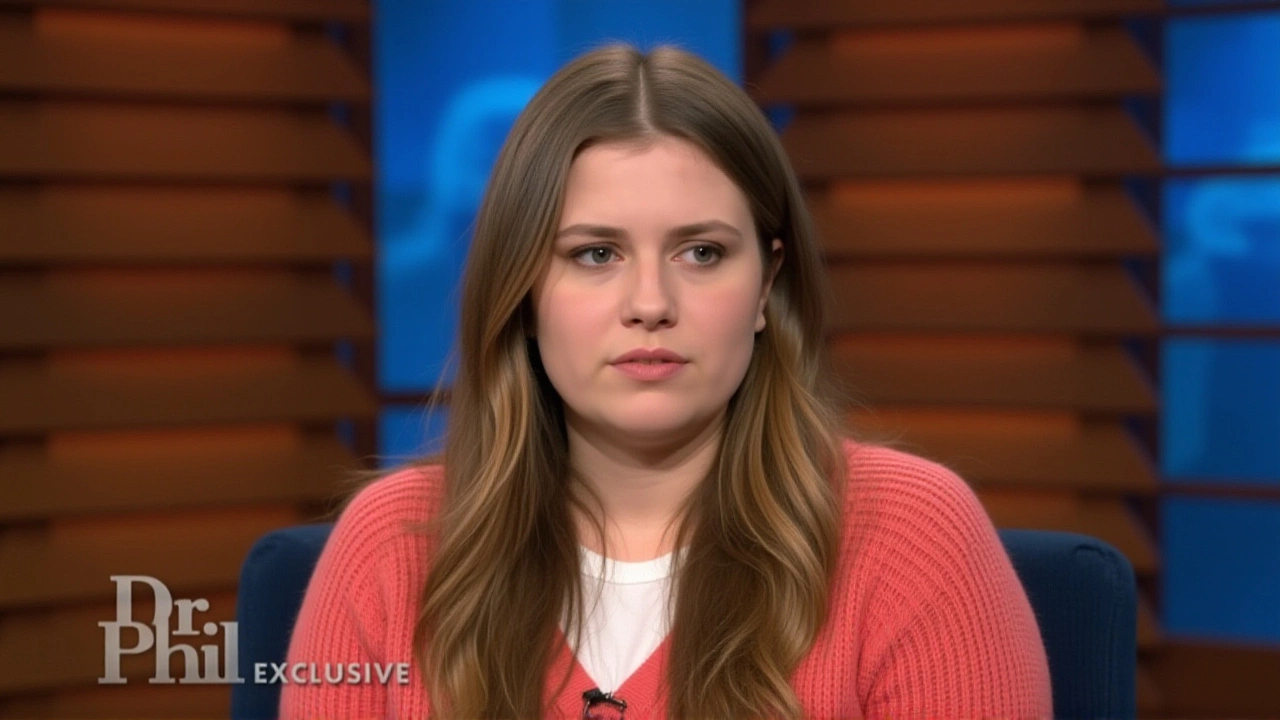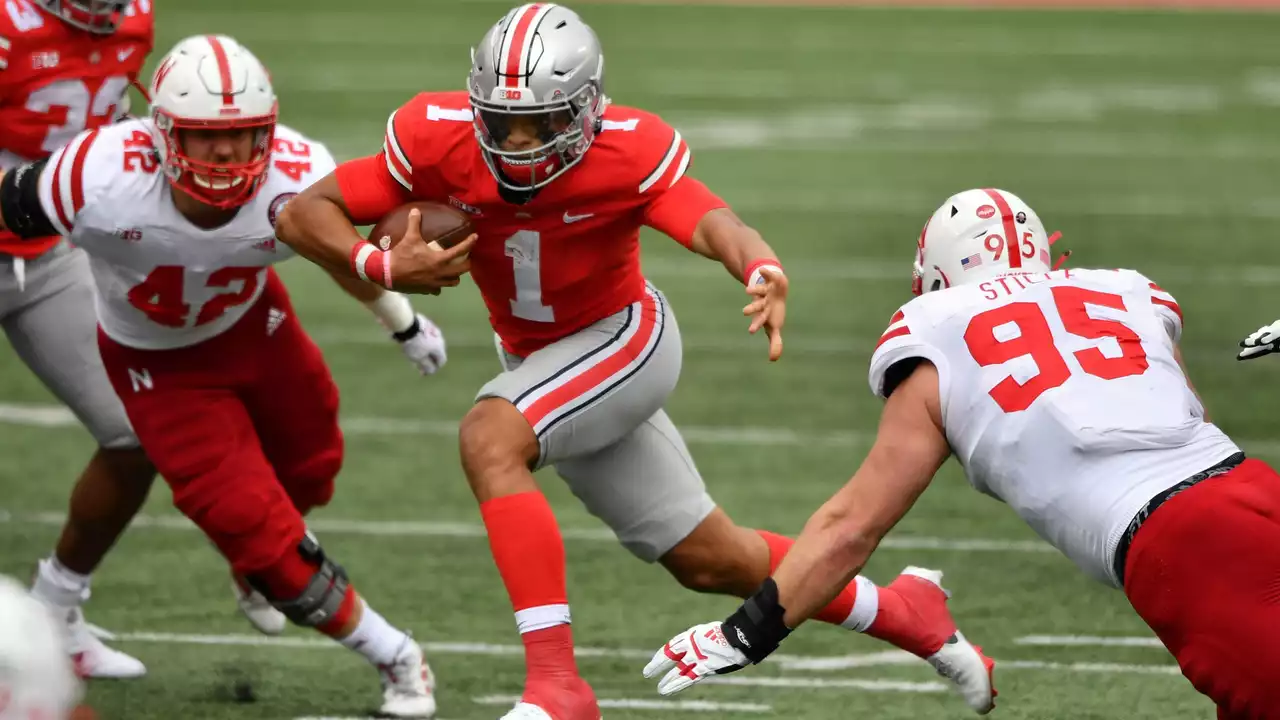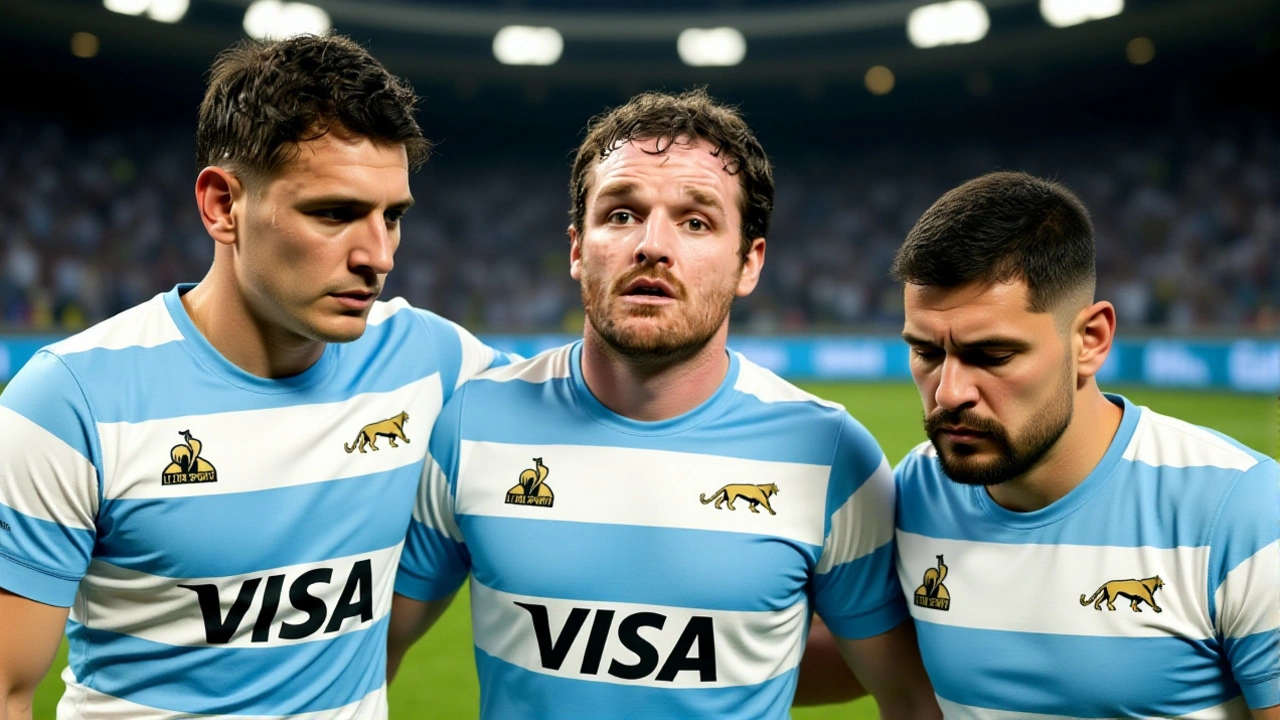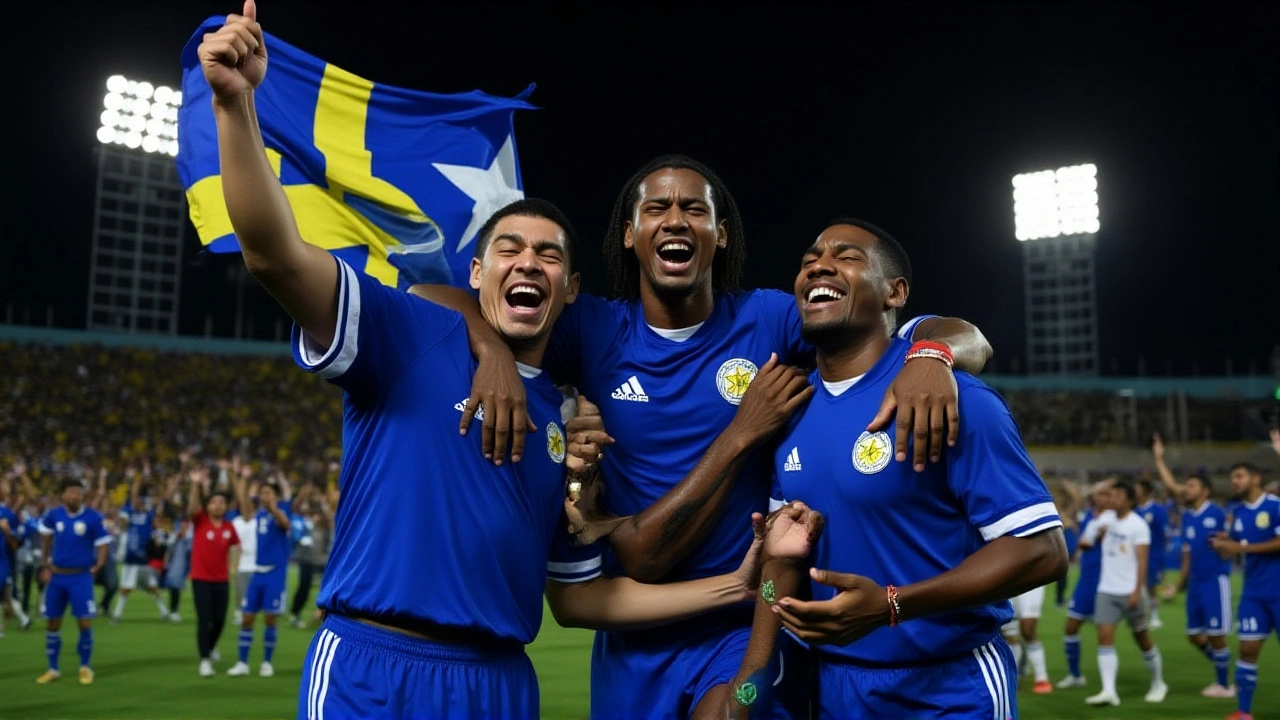
On November 19, 2025, at 00:01:07 UTC, a quiet island in the southern Caribbean made global football history. Curaçao, a tiny nation of just 160,000 people, defeated Jamaica in a nail-biting CONCACAF qualifier to secure its first-ever spot in the 2026 FIFA World CupMexico, the United States, and Canada. The win wasn’t just a victory—it was a seismic moment for a place where football is more than a sport; it’s identity. As the final whistle blew, players collapsed to their knees, tears mixing with sweat. One unnamed player, captured in an Agence France-Presse (AFP) video, whispered: "We will show everyone that we are small, but we are big at heart." And suddenly, the world was listening.
A Nation That Never Quit
Curaçao isn’t new to football. The Curaçao Football Federation, known locally as Koninklijke Nederlandsche Voetbal Bond Curaçao, has been chasing this dream since joining CONCACAF in the 1960s. But every qualifying campaign ended the same way: heartbreak. They lost to Haiti. They drew with Trinidad and Tobago. They fell short in penalty shootouts. For decades, the island’s tiny population—smaller than many U.S. high schools—was seen as a barrier. How could a place with fewer people than the city of Fort Wayne, Indiana, compete against nations with 30 times their size?
The answer? Grit. Discipline. And a squad built on local talent and diaspora pride. Many players grew up on Curaçao’s dusty pitches, then moved to the Netherlands or Belgium for club careers, only to return for national duty. Midfielder André Bahia, who played for Feyenoord and later returned to represent Curaçao, became a symbol of that loyalty. The team’s coach, Dutch-born Wim Jonk, who once captained Ajax and the Netherlands national team, took the job in 2022 knowing it was a long shot. "They don’t have resources," he told ESPN in 2024. "But they have soul. That’s what you can’t coach."
The Match That Changed Everything
The decisive game against Jamaica wasn’t pretty. It was muddy. Rain poured down at the Curaçao National Stadium in Willemstad, turning the pitch to clay. Jamaica, ranked 78th in the world, entered as favorites. They had stars from MLS and the English Championship. Curaçao? Their top scorer, Stefano Rijssel, played for a second-division Dutch club. But in the 67th minute, a counterattack started by goalkeeper Joey Didulica—a 34-year-old former Dutch youth international—ended with a looping header from Wesley Sneijder Jr., son of the legendary Dutch playmaker. The goal sent the stands into chaos. Fans in the stands, many wearing handmade shirts with the words "160,000 Strong," screamed until their voices cracked.
AFP’s video footage, recorded at 00:00:35 UTC, shows players hugging strangers in the stands. A little girl, no older than six, holds a sign: "Mama, we’re going to the World Cup!" The celebration lasted hours. Fireworks lit up Willemstad’s skyline. Bars ran out of rum. The island’s power grid, already fragile, briefly flickered from the surge of phone chargers and TV screens turning on.
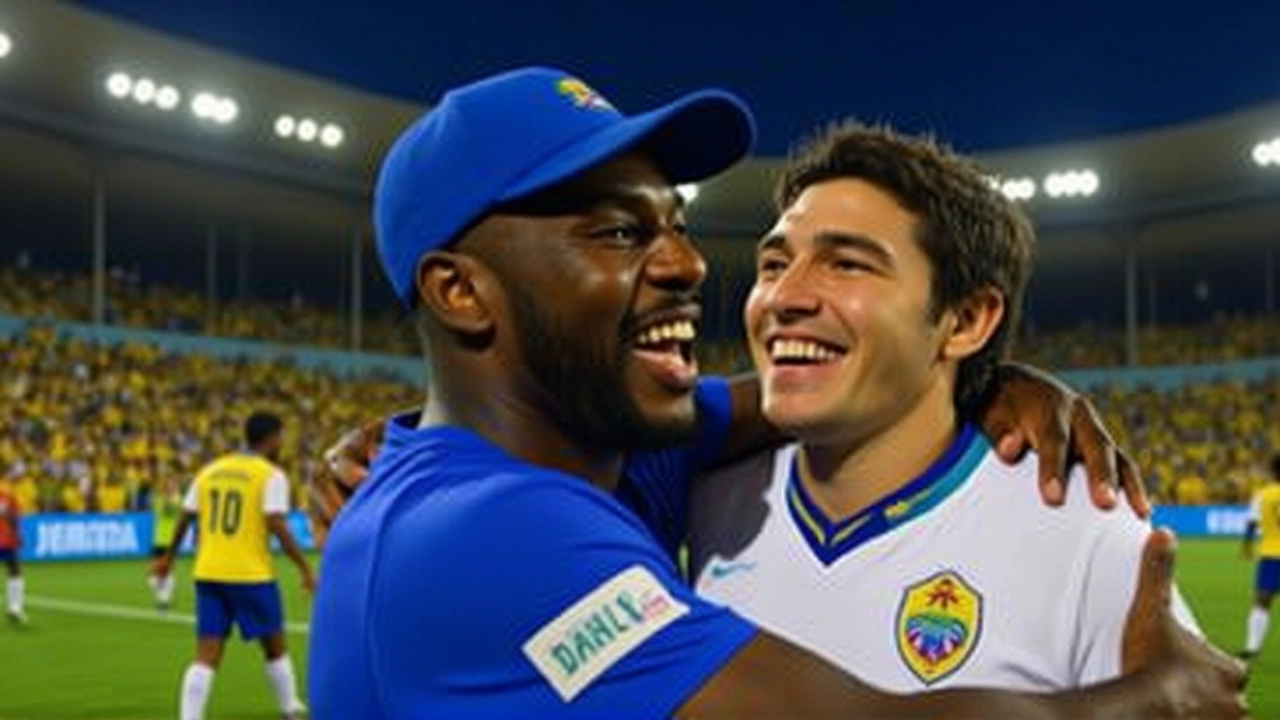
What This Means for the Caribbean
Curaçao’s qualification isn’t just a win for one island. It’s a spark for the entire region. For years, Caribbean teams have been written off in World Cup qualifiers. Jamaica, Trinidad and Tobago, Haiti—all have made it before. But none with such odds stacked against them. Curaçao’s success proves that size doesn’t dictate potential. It’s a message to Saint Lucia, Suriname, and even Puerto Rico: if you believe, you can break through.
Football analysts are already comparing this to Iceland’s 2016 Euro run or the Faroe Islands’ 2019 win over Greece. Those were underdog stories. This is different. Curaçao isn’t just a small nation—it’s the smallest ever to reach the World Cup finals. That record will stand for decades. And it wasn’t luck. They finished third in the final CONCACAF qualifying group with 13 points, ahead of Jamaica and Honduras. Their defense conceded just four goals in eight matches.
The Road to 2026
The 2026 FIFA World CupMexico, the United States, and Canada will be the largest ever, with 48 teams. Curaçao will be drawn into one of 12 groups. Their first opponent? Likely Brazil, Portugal, or Spain. No one expects them to win. But no one expected them to get here either.
For the players, it’s about more than glory. It’s about legacy. "My son was born the day we qualified," said defender Marlon Harewood, who plays in the Dutch third tier. "Now he’ll grow up knowing his dad played in the World Cup. That’s worth more than any trophy."
FIFA, headquartered in Zurich, has already signaled it will send a delegation to Curaçao to help with infrastructure ahead of 2026. The island’s airport is being upgraded. A new training center is under construction. And for the first time, the government has allocated funds for youth academies. "This isn’t the end," said Curaçao Football Federation president Edwin Schippers. "It’s the beginning."
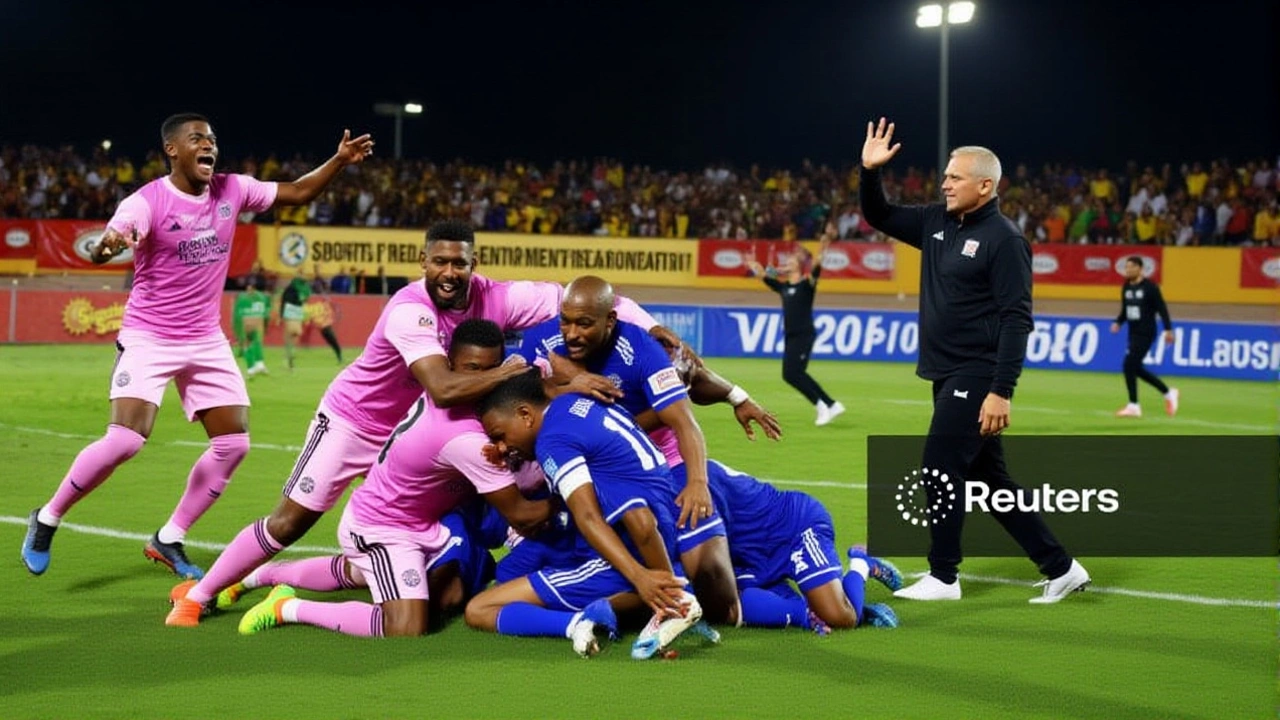
What’s Next?
By early 2026, Curaçao’s squad will begin a pre-tournament tour, playing friendlies against teams like Wales and Senegal to prepare. The ESPN schedule, last updated in May 2025, confirms the team’s first match will likely be in late June in the U.S. Midwest. Merchandise sales have already surged—Curaçao’s yellow-and-red kits sold out in 72 hours. A documentary is in the works. And back home, schools have added World Cup history to their curriculum.
There’s no guarantee Curaçao will win a game in 2026. But they’ve already won something bigger: respect.
Frequently Asked Questions
How did Curaçao qualify for the 2026 World Cup?
Curaçao qualified by finishing third in the final round of CONCACAF World Cup qualifiers, earning 13 points across eight matches. Their 1-0 win over Jamaica on November 19, 2025, sealed their spot. Only the top three teams from the final group advanced, and Curaçao edged out Jamaica on goal difference after a tightly contested campaign that began in 2023.
Why is Curaçao considered the smallest country to qualify?
With a population of approximately 160,000, Curaçao is smaller than any other nation to ever reach the World Cup finals. Previous smallest qualifiers like Iceland (360,000) and Trinidad and Tobago (1.4 million) had more than double its population. Curaçao’s size, combined with its lack of professional domestic league, makes its achievement unprecedented in World Cup history.
Who are the key players on Curaçao’s World Cup squad?
The squad blends local talent with diaspora stars. Midfielder Wesley Sneijder Jr. (son of Dutch legend Wesley Sneijder) leads the attack, while goalkeeper Joey Didulica, 34, anchors the defense. Forward Stefano Rijssel, who plays for FC Volendam in the Dutch second division, scored the decisive goal against Jamaica. Defender Marlon Harewood and captain André Bahia, both former Dutch youth internationals, provide experience and leadership.
How is Curaçao preparing for the 2026 World Cup?
The Curaçao Football Federation has secured funding for a new training complex in Willemstad and is upgrading the island’s airport to handle international teams. The government has launched youth academies in all seven districts. The squad will play friendly matches against Wales and Senegal in early 2026 to gain exposure. FIFA has pledged technical support, including access to sports science resources from its Zurich headquarters.
What impact has this had on Curaçao’s economy and culture?
Tourism bookings have jumped 40% since qualification, and local businesses report a 200% surge in football merchandise sales. The government has declared a national holiday for the team’s departure. Schools are teaching World Cup history, and a documentary crew is filming the team’s journey. For a nation with limited economic opportunities, this moment has rekindled national pride and inspired a new generation of players.
Can Curaçao realistically win a match in the 2026 World Cup?
While they’re heavy underdogs, history shows underdogs can surprise. Curaçao’s defense has conceded just four goals in eight qualifiers. With the right draw and a disciplined game plan, a single goal and a clean sheet could be enough. Even a 1-1 draw against a powerhouse like Spain would be a historic achievement. Their goal isn’t to win the tournament—it’s to prove that size doesn’t define greatness.


